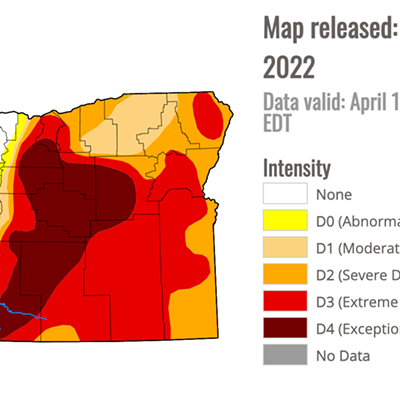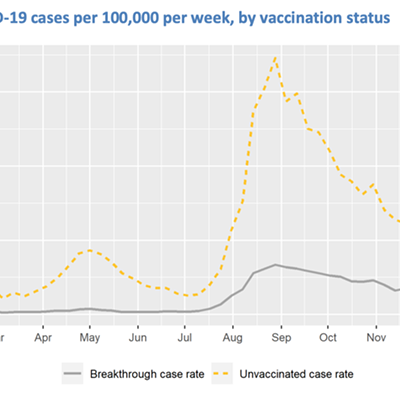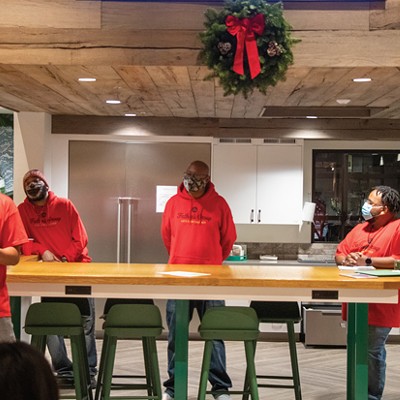Over the last three years, Action Through Advocacy has been operating out of the homes of its volunteer organizers and more recently from a storage unit. The foster care support nonprofit recently rented an office space and its founder, Heidi Myers, says that now it will be easier to help foster parents get items they need like clothing, shoes, and school supplies.
Action Through Advocacy links foster care families with support resources and services like in-home tutoring and relief care, and provides in-home volunteers to assist with a bit of extra help when needed. Financial Director Karen Banks says volunteers are essential to supporting foster parents because they help with "house work, folding clothes, or whatever the parent needs so they have more time to have a cup of coffee and relax."
Myers, who also serves as the organization's executive director, knows the ins and outs of foster care parenting—she's an adoptive parent and a foster parent herself—and recognized the need for a nonprofit to fill the gaps. ATA has a foster parent advisory committee which "gives a voice to foster parents that can be communicated back to DHS so we can make sure we're working on their behalf in the most critically needed areas," says Myers. Currently, foster children need more counseling and therapeutic services.
The office space is now home to Action Through Advocacy's Hope Chest—which provides clothes, school supplies, and toys. When children arrive at foster homes, they often "come in with only the clothes on their backs," says Banks. "Many homes in Deschutes have three to five kids." The average foster family most likely has a family of their own and can't afford to purchase necessities for children they are helping. Foster families receive assistance checks from the Oregon Department of Human Services, but those arrive approximately a month after a child is placed in a new home, according to Banks.
All of ATA's organizers and volunteers have full-time jobs elsewhere because all of the nonprofit's funding goes directly to foster care resources. Banks—who works as a realtor—says after searching for a space offering month-to-month rent, she negotiated a three-month rental price for their new office space.
"We've been operating off of fundraisers, and we don't have any people that are giving money monthly right now," she says. "It's much nicer than working out of our homes."
According to Action Through Advocacy, there are close to 300 children in the foster care system in Deschutes, Jefferson, and Crook Counties and due to the average size of foster homes in Central Oregon, more foster families are needed. For people considering becoming foster families, Banks says it's critical to understand the needs of children being abruptly removed from their homes.
"Children that come into foster care are severely neglected or abused, and the job of foster parent is to rehabilitate children and bring them back from their tragedy to help them grow and become successful," says Banks. She also says that some children are born to drug addicted mothers. "Know that these children are damaged and abused and come with behavioral problems, and foster parents have to learn to deal with them."
Foster parent training courses can be arranged through ATA, and they train anyone who wants to provide relief care for foster care parents. Although stays vary depending on the situation, most children are in foster care for approximately six months so tutors help play an essential role during a child's transition.
"Tutors go into the homes when the foster parent is there to help the student come up-to-grade-level reading," says Banks. "They might continue it for a year depending on what the child needs." She also says science and math tutors are greatly needed.
Communication between foster parents and the Oregon Department of Human Services is imperative because Myers says Oregon is a return to home state. For foster children, the first goal is to return them to their parents, she says. DHS works on a case-by-case basis with parents to arrange for training to give them a second chance, but if parents are unwilling to participate, their parental rights can be terminated.
"Each parent has a certain amount of time [during which] they need to need to be rehabilitated. If it's bad parenting style, then they go through parenting training," says Myers. Myers also notes that DHS works extensively but the department is "understaffed and maxed out at what they can accomplished."
ATA hopes to keep their current office space. As the nonprofit continues to put more effort into fundraising and assisting crowded foster homes, Myers says it's going to take a lot of work.
"Keeping [the office space] for next year depends very much on financial support," she says. "It's important because then we can better serve the foster care community."
For more information on Action Through
Advocacy, visit their website at

























